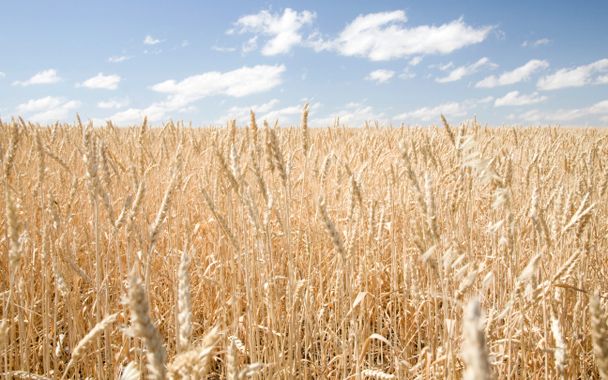Wheat Germs
Impoverished populations in Pakistan, Afghanistan, India, and neighboring countries face widespread starvation if a virulent crop disease continues to sweep from Africa and the Near East into the region, Asia’s breadbasket and the source of nearly a quarter of the world’s wheat.
Last week, the United Nations’ Food and Agriculture Organization (FAO) asked authorities in the area to be on high alert, following reports of outbreaks of black stem rust, called Ug-99, in previously unaffected wheat fields in Iran. The fungus can wipe out entire crops, and its spores are easily spread by the wind.
Even before the outbreak of the stem rust there was a worldwide wheat shortage. In the United States, it has meant higher prices from both large food companies such as Sara Lee Corp. and small artisanal bakers. Poor people in the developing world will not be able to afford higher-priced wheat products, the FAO rightly fears.
Fungicide can control Ug-99, but the only real remedy is resistant crop varieties, which are still five years away. By that time the disease may have spread to the United States.
I’m Not Insane, After All
Last week I expressed concern that I was becoming paranoid. I speculated that the hidden hand of Monsanto Co. lay behind the recent flurry of legislation in at least six states aimed at forbidding dairies from labeling their milk products as free of the artificial growth hormone rBST, even if they are.
Monsanto sells the hormone, which makes cows give more milk, under the trade name Prosilac. Last summer the Federal government refused Monsanto’s requests for a nationwide ban on no-rBST labels.
Well, sometimes a little healthy paranoia can serve a food writer well. An article last week by Andrew Martin in The New York Times reported that an outfit called American Farmers for the Advancement and Conservation of Technology (which strikes me as an awfully strained way of getting to the acronym “Afact”) is lobbying the states to bar the labels. And, what do you know, Martin reports that Monsanto funded Afact, which also receives financial support from a marketing firm co-founded by a former executive of—
I’ll let you guess the name of the company. I don’t want people to think I’m crazy.
It’s in the Bag
And believe me, you don’t want it to be there. The bags in question are the ones in the produce case, filled with pre-cut fresh spinach. The “it” is E. coli (among other microbial contaminants).
A report issued this week by the House Oversight and Government Reform Committee says that nearly half of the inspections of spinach packaging plants since 2001 uncovered serious sanitary problems—everything from rodent-related issues to filthy restrooms to poor hygiene among workers. The plants were inspected only once every two and a half years, even though the Food and Drug Administration (FDA) is supposed to do it annually.
And when it did discover the potentially dangerous conditions (20 human outbreaks of E. coli have been traced back to fresh greens since 1995), what did the FDA do?
Nothing.




 Pinterest
Pinterest


